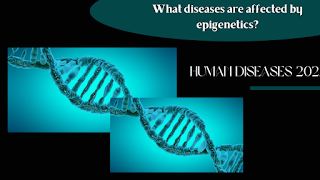How does stress affect epigenetics?
A new study shows that stress causes novel DNA modifications
within the brain which will cause medical specialty issues. Epigenetic changes like DNA
methylation and simple protein modification facilitate a cell management
organic phenomenon by exactly turning genes on or off. Recent findings in
epigenetics shed new light-weight on the regulation of organic phenomenon
within the central system a nervosum (CNS) throughout stress. The foremost off times
studied epigenetic mechanisms area unit DNA methylation, simple protein
modifications and microRNA activity. These mechanisms stably verify cell makeup
however also can be accountable for dynamic molecular variations of the CNS to
stressors.
The limbic–hypothalamic–pituitary–adrenal axis (LHPA) is that
the primary circuit that initiates, regulates and terminates a stress response.
a similar brain areas that management stress conjointly react to worry
dynamically and with long-run consequences. one in all the biological processes
evoking potent adaptational changes within the CNS like changes in behavior,
sequence activity or colligation physical property within the hippocampus is
mental stress. This review summarizes the present knowledge relating to the
epigenetic basis of molecular variations within the brain as well as
genome-wide epigenetic changes of DNA methylation and specific genes concerned
in epigenetic responses that participate within the brain response to chronic
mental stressors. it's all over that specific epigenetic
mechanisms within the CNS area unit concerned within the stress response.
Aging could be a complex method characterised by the progressive loss of
physiological functions, resulting in associate accrued vulnerability to
age-associated diseases and at last to death. Many theories are projected to
clarify the character of aging. One in all the foremost noted identifies the
free radicals created by the mitochondrial metabolism because the reason for
cellular and DNA harm. However, there are many evidences supporting that
epigenetic modifications, like DNA methylation, non-coding RNAs, and simple
protein modifications, play a crucial role within the molecular mechanism of
aging.
The brain is that the central organ of stress
and adaptation to worry as a result of it perceives and determines what's
threatening, further because the activity and physiological responses to the
agent. The adult, further as developing brain, possess a motivating ability to
indicate reversible structural and purposeful physical property in response to
trying and alternative experiences, as well as somatic cell replacement, nerve fiber
remodeling, and conjunction turnover. This is often notably evident within the
hippocampus, wherever all 3 sorts of structural physical property are
recognized and investigated, employing a combination of morphological,
molecular, pharmacologic, and electrophysiological and activity approaches. The
amygdaloid nucleus and also the anterior cortex, brain regions concerned in
anxiety and concern, mood, psychological feature operate and activity
management, conjointly show structural physical property. Acute associated
chronic stress cause an imbalance of neural electronic equipment subserving
psychological feature, higher cognitive process, anxiety and mood which will
increase or decrease expression of these behaviors and activity states. within
the short term, like for accrued fearful vigilance and anxiety in an
exceedingly threatening setting, these changes could also be adaptive; however,
if the danger passes and also the activity state persists alongside the changes
in neural electronic equipment, such maladaptation might have intervention with
a mix of pharmacologic and activity therapies, as is that the case for chronic
or mood anxiety disorders.




Comments
Post a Comment